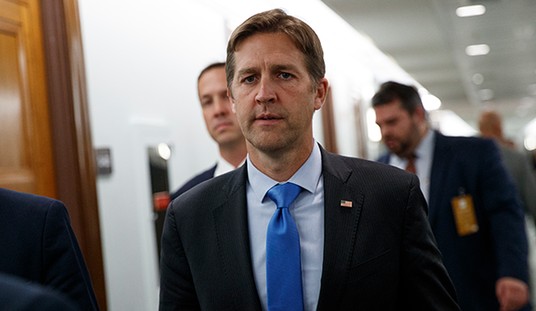 ABC News describes the beer sitdown between Cambridge Police Sergeant James Crowley and Professor Henry Louis Gates to discuss differences between them as “Frothy Diplomacy”. Describing the froth is the easy part. Gates will have Red Stripe or Beck’s.” Crowley is drinking Blue Moon. The “diplomacy” component is more problematic. The fundamental problem in diplomacy is “who’s talking to whom?” It traditionally connotes a dialogue between two nations. The problem is, what are the two nations? Black and White? Town and Gown? Or elite and working class? Just as with the beers, there’s a wide selection on offer.
ABC News describes the beer sitdown between Cambridge Police Sergeant James Crowley and Professor Henry Louis Gates to discuss differences between them as “Frothy Diplomacy”. Describing the froth is the easy part. Gates will have Red Stripe or Beck’s.” Crowley is drinking Blue Moon. The “diplomacy” component is more problematic. The fundamental problem in diplomacy is “who’s talking to whom?” It traditionally connotes a dialogue between two nations. The problem is, what are the two nations? Black and White? Town and Gown? Or elite and working class? Just as with the beers, there’s a wide selection on offer.
The coming White House meeting would be incomprehensible unless somehow each of the beer drinkers was emblematic of some point of view or there would be no point to the meeting. The saddest commentary on the state of public discourse is that it while would be completely inappropriate to even speculate on what those banners might be, its easy enough to take a guess: a cop’s pride, a black academic’s deeply rooted fears, the President’s interest in what he has already purportedly transcended. It’s a teaching moment in which the blackboard has been left blank, where the entire curriculum is typed between the lines, where everything often is. The message is in the drama; the sound is off, but that’s OK. Everybody knows the lines.
“Today is the day to move forward,” City Manager Robert Healy said at a news conference. … The committee, led by “nationally recognized experts,” will not investigate the arrest of Gates, nor will it “make any judgments” on the officers involved, Healy said. The committee “will identify lessons to be taken from the circumstances surrounding the incident” and will advise the police department on how “those lessons can be applied” to its policies and practices.
One of the reasons the 1981 movie Chariots of Fire was so interesting was that it proved you could have a story even when everybody had a different script. It was an exploration of the ethnic, religious and class motivations of British athletes in the 1924 Olympic race. Each protagonist was driven by different things. The Cambridge dons urged undergraduate Harold Abrahams over a glass of sherry — no beer in house master’s rooms — to do without the demeaning use of a track coach. The dons want him to carry the banner of the British upper class, whose power depends on the impression of effortless supremacy, for gentleman are to the manner born, and to strain even in the pursuit of a Gold Medal would be shameful. But Abrahams valued success above class and for him the shame would be in the loss. Offstage the other British Olympic star, the missionary Eric Lidell, is determined to win a medal for the honor of God. Each entered the Olympic stadium with his own agenda.
Track is perhaps the only sport where the competitor runs not only against the men in the lanes around him, but against himself and men still unborn. The British statesman and Olympic athlete Philip Noel Baker knew this and said that “Harold Abrahams was the only European sprinter who could have run with Jesse Owens, Joe Candito, Ralph Metcalfe, and the other great sprinters from the U.S.” For Baker, Abrahams was running against the book, whoever else was in the stadium with him that day in 1924. In the same way, maybe neither Gates, Crowley nor Obama will really be speaking to each other. They will be speaking for the Press, and through them to a wider audience, who will make of it what they will.
But as for Lidell, he played another game. He famously refused to run his event at the Olympics when it was scheduled on a Sunday and yet managed to win another event anyway, in a substitution. For Lidell, the race itself was the point. “I believe that God made me for a purpose, but He also made me fast. When I run, I feel His pleasure.” He went on to be a missionary in China where he was interned when World War 2 broke out and died in a concentration camp just a few months before Japan surrendered.
It was recently revealed by the Chinese authorities that Liddell had given up an opportunity to leave the camp and instead gave his place to a pregnant woman. Apparently, the Japanese did a deal with the British,with Churchill’s approval, for prisoner exchange. Therefore, because Eric was a famous athlete he was one of the chosen as part of the prisoner exchange. However, he gave his place to another. This information was released near the time of the Beijing Olympics by the Chinese government and apparently news of this great act of sacrifice came as a surprise even to his family members. Fifty-six years after the 1924 Paris Olympics, Scotsman Allan Wells won the 100 metre sprint at the 1980 Moscow Olympics. When asked after the victory if he had run the race for Harold Abrahams, the last 100 metre Olympic winner from Britain (in 1924), Wells replied, “No, this one was for Eric Liddell.”
What’s this one for? Black and White? Town and Gown? Or elite and working class? Just as with the beers, there’s a wide selection on offer.
Abrahams watches Lidell in an qualifying event.










Join the conversation as a VIP Member